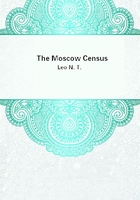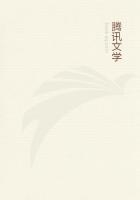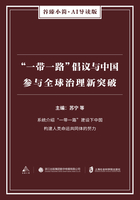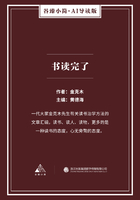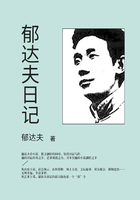The See of Armagh which was vacant by the death of Primate Dowdall was conferred by the Pope on Donat O'Teige (Feb. 1560). The latter was consecrated at Rome, and arrived in Ireland probably towards the end of the same year. In the summer of 1561 he was present at Armagh with the army of Shane O'Neill whom he encouraged to go forward boldly against the forces of the Deputy. Needless to say such a primate was not acceptable to Elizabeth who determined to appoint one Adam Loftus, then a chaplain to the Earl of Sussex. Loftus was a young man only twenty-eight years of age, who had made a favourable impression on the queen as well by his beauty as by his learning. Letters were dispatched immediately to the Chapter of Armagh commanding the canons to elect him, but as they refused to obey the order, nothing remained except to appoint him by letters patent (1562). As he dare not visit the greater part of his diocese he applied for and received the Deanship of St. Patrick's, Dublin, and about the same time he became a suitor for his brother that he might get the rectory of Dunboyne. In 1563 Elizabeth thought of changing him to Kildare, and in 1566 the Deputy recommended him for Meath, believing that "he would thankfully receive the exchange, and willingly embase his estate to increase so much his revenue." But Loftus had set his heart on securing the Archbishop of Dublin. Time and again he made the most damaging charges against Curwen so as to secure his removal, although when the removal was arranged he learned to his surprise that the authorities intended to promote not himself, but his fellow-labourer, Hugh Brady of Meath.
In April 1566, when he thought that Brady had no chance of succeeding to Dublin, he had recommended him for the appointment, but in September, when he learned that there was danger of his recommendation being followed, he wrote to warn Cecil that "if it would please his honour to pause a while he could show such matter as he would, except it were for the Church of God's sake, be loath to utter by any means, but least of all by writing, upon knowledge whereof the matter, he knows, should go no further." Brady having learned that Loftus had gone to England wrote to Cecil to put him on his guard against believing any charges against him that might be made by the Primate.
He returned in November without having succeeded, only to find that Shane O'Neill had overrun his diocese so that it was not worth more than ā20 a year. He petitioned to be allowed to resign, "for," he said, "neither is it [Armagh] worth anything to me, nor [am] I able to do any good in it, for that altogether it lieth among the Irish." At last in 1567 his wishes were granted, and he became Archbishop of Dublin. But he was still dissatisfied. As the diocese, according to him, was worth only ā400 (Irish) a year (over ā30,000) and had only two hundred and forty acres of mensal land, he insisted that he should be allowed to hold with it the Deanship of St. Patrick's, a request, however, that was refused peremptorily by the queen.[47] In Dublin he continued the same policy of grabbing everything for himself, his relatives and dependents until at last the chapter, weary of his importunities, obliged him to promise not to ask for anything more.
Fortunately his guarantee was entered in the records, as he appeared soon again to solicit one last favour.
In place of Dr. Walsh of Meath, who refused to take the oath of supremacy, Hugh Brady was appointed (1563). In his letters to Cecil he complained that the payment of his fees and the expenses of the consecration would beggar him, that he was opposed by both the clergy and laity of his diocese in such a stubborn way that he would "rather be a stipendiary priest in England than Bishop of Meath in Ireland,"and that unless her Majesty pardoned the debts she was claiming he must lose all hope, as he was very poor and obliged to entertain right royally, "for these people," he wrote, "will have the one or the other, I mean they will either eat my meat and drink or else myself."The relations existing between Loftus of Armagh and the Bishop of Meath were of the most strained kind. When Brady learned that Loftus had been made Dean of St. Patrick's he addressed an indignant protest to Cecil, but as both Loftus and himself aspired to become Archbishop of Dublin, both united to attack Curwen so as to secure his removal.
Grave charges were made by Loftus against Brady in 1566, but once he had attained the object of his desires, namely his promotion to Dublin, he had no scruple in attaching his name to a very laudatory commendation of Brady's labours and qualifications (1567).[48]
A certain Dr. Craik was appointed by Elizabeth to Kildare in opposition to Dr. Leverous. The new bishop was far from being content with the honour that had been conferred upon him. Writing to his patron, Lord Robert Dudley, he complained that he was in continual and daily torment owing to the fact that he was bishop in a diocese where he could neither preach to the people nor could the people understand, and where he had no one to assist him. He succeeded in securing for himself the Deanship of St. Patrick's in Dublin, and was a strong suitor for the Bishopric of Meath. Not content with his revenues, he sold most of the episcopal lands in Kildare so that he reduced the diocese "to a most shameful state of poverty."[49] Finally, he went over to England to petition the queen for a remission of his fees, but he was thrown into the Marshalsea prison from which he was released only a few months before his death.[50] Donald Cavenagh was appointed by the queen to Leighlin (1567), where he devoted himself principally to enriching himself by disposing of the diocesan property; and John Devereux, who, according to Loftus, was most unfit owing to the fact that he had been deprived of the Deanship of Ferns "for confessed whoredom,"[51] was appointed Bishop of Ferns (1566).



